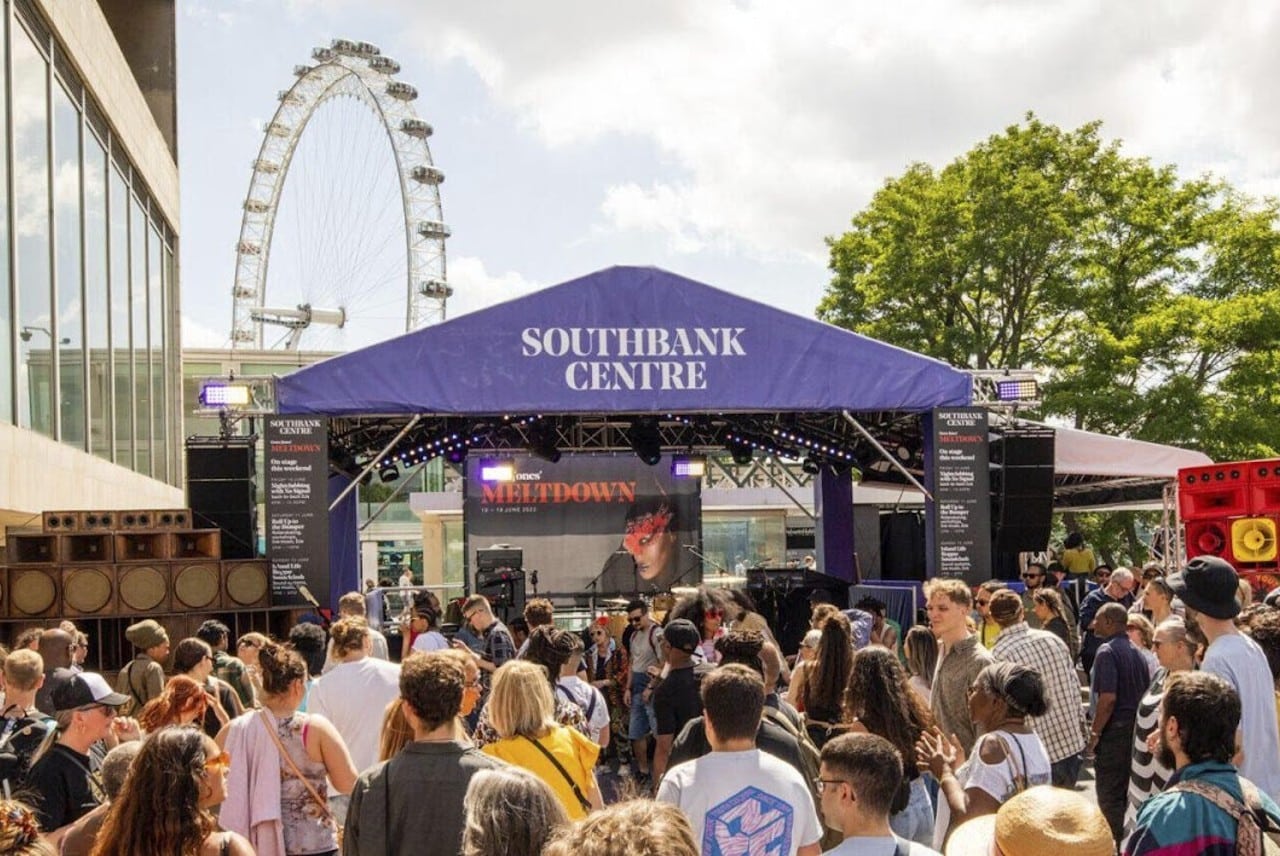Mark Rylance Criticises Music Festivals' Impact On London Parks

Table of Contents
Environmental Damage Caused by Music Festivals
Music festivals, with their throngs of attendees and elaborate staging, inevitably leave a significant environmental footprint on London Parks. The consequences extend far beyond the immediate post-event cleanup.
Soil Degradation and Erosion
The sheer volume of foot traffic, coupled with the heavy machinery used for stage setup and vehicle access, causes significant soil compaction. This leads to:
- Compacted soil: Reduces oxygen flow to plant roots, hindering plant growth and biodiversity.
- Loss of biodiversity: Destruction of habitats for insects, plants, and other organisms.
- Disruption of natural drainage: Increased risk of flooding and waterlogging.
- Increased erosion risk: Makes the soil more vulnerable to wind and rain damage.
Studies have shown that large-scale events can cause long-term damage to soil structure, impacting the park's ecosystem for years to come. The scale of this damage varies depending on the size of the festival and the type of ground, but the cumulative effect of numerous events across London's parks is a serious concern.
Waste Management Issues
Music festivals generate an enormous amount of waste, often exceeding the capacity of existing recycling and waste management infrastructure. This leads to:
- Plastic pollution: Mountains of plastic bottles, cups, and packaging litter the parks long after the music fades.
- Litter: Uncollected rubbish harms wildlife and degrades the aesthetic value of the park.
- Improper waste disposal: Overflowing bins and illegal dumping contaminate soil and waterways.
- Impact on wildlife: Animals ingest or become entangled in discarded waste, causing injury or death.
For example, the aftermath of some major festivals in London's parks has revealed shocking levels of plastic waste, highlighting the urgent need for improved waste management strategies.
Noise Pollution and its Effect on Wildlife
The prolonged periods of loud music and late-night activity associated with music festivals severely disrupt the delicate balance of London's park ecosystems. This includes:
- Disturbance of nesting birds: Loud noise can cause birds to abandon their nests, leading to reproductive failure.
- Impact on nocturnal animals: Nocturnal animals rely on quiet environments for foraging and breeding; loud music disrupts their natural behaviours.
- Stress on local ecosystems: Chronic noise pollution can lead to increased stress hormones in animals, impacting their health and survival.
Scientific studies have extensively documented the negative effects of noise pollution on wildlife, underscoring the need for mitigation strategies during music festivals.
Social and Community Impact of Festivals in London Parks
While music festivals bring economic benefits, their impact on local communities and access to green spaces deserves careful consideration.
Accessibility and Disruption to Local Residents
The influx of festival-goers often leads to significant disruption for residents living near the affected parks:
- Reduced access to recreational spaces: Parks become inaccessible to local communities during and immediately after the event.
- Traffic jams: Increased traffic congestion makes it difficult for residents to navigate the area.
- Parking difficulties: Limited parking spaces are often overwhelmed, causing inconvenience and frustration.
- Noise complaints: The prolonged periods of loud music cause significant noise pollution, disturbing residents' sleep and daily routines.
Many local residents express concerns about the limited consideration given to their needs during the planning and execution of these events.
Economic Benefits vs. Environmental Costs
While music festivals generate revenue through tourism and job creation, the long-term environmental costs must be factored into the equation:
- Job creation: Festivals create temporary employment opportunities.
- Tourism revenue: They attract visitors and boost local economies.
- Long-term environmental costs: Cleanup, soil restoration, and ecological recovery can be expensive and time-consuming.
- Repair and restoration expenses: Remediating the environmental damage caused by festivals places a financial burden on local authorities and taxpayers.
Sustainable practices are crucial to mitigate these negative impacts and ensure that the economic benefits are not achieved at the expense of London's precious green spaces.
Potential Solutions and Sustainable Practices for Music Festivals
Implementing sustainable practices is crucial to minimize the environmental impact of music festivals while still allowing for their enjoyment.
Implementing Sustainable Event Management
Festival organizers can significantly reduce their environmental footprint by adopting various eco-friendly measures:
- Use of renewable energy sources: Solar and wind power can reduce reliance on fossil fuels.
- Reduced plastic usage: Promoting reusable containers and minimizing single-use plastics.
- Improved recycling programs: Implementing efficient and comprehensive recycling systems.
- Composting initiatives: Composting food waste and organic materials to reduce landfill waste.
Choosing Suitable Locations and Minimizing Disruption
Careful consideration of event location is paramount:
- Assessment of environmental impact: Conduct thorough environmental impact assessments before approving festival sites.
- Consideration of alternative sites: Explore alternative locations that are less environmentally sensitive.
- Community consultation: Involve local communities in the planning process to address their concerns and minimize disruption.
Government Regulation and Policy
Local authorities play a crucial role in ensuring environmentally responsible event management:
- Environmental impact assessments: Mandating comprehensive environmental impact assessments for all large-scale events in parks.
- Stricter waste management regulations: Enacting and enforcing stricter regulations on waste management and recycling.
- Licensing conditions: Including environmental protection clauses in festival licenses.
Conclusion: Protecting London's Parks from the Impact of Music Festivals
Mark Rylance's concerns highlight a critical issue: the need to balance the economic benefits of music festivals with the vital importance of protecting London's parks. The environmental damage caused by these events, including soil degradation, waste management issues, and noise pollution, cannot be ignored. Implementing sustainable practices, choosing appropriate locations, and strengthening government regulations are essential steps to ensure the long-term health of London's green spaces. We must move towards a future where sustainable music festivals thrive without compromising the environmental integrity of London's parks. Learn more about sustainable event initiatives, support environmentally responsible festivals, and contact your local representatives to advocate for stronger protection of London's parks. Let's work together to protect London parks and ensure responsible event management for future generations.

Featured Posts
-
 Nyt Connections April 29 2024 Puzzle 688 Solutions And Hints
May 19, 2025
Nyt Connections April 29 2024 Puzzle 688 Solutions And Hints
May 19, 2025 -
 Nea Epoxi Gia Tis Sxeseis Ierosolymon Kai Antioxeias
May 19, 2025
Nea Epoxi Gia Tis Sxeseis Ierosolymon Kai Antioxeias
May 19, 2025 -
 Secure Your Paige Buecker Dallas Wings Jersey Before Her Debut
May 19, 2025
Secure Your Paige Buecker Dallas Wings Jersey Before Her Debut
May 19, 2025 -
 Real Madrid Targets New Signing Following Mbappes Subpar Arsenal Performance
May 19, 2025
Real Madrid Targets New Signing Following Mbappes Subpar Arsenal Performance
May 19, 2025 -
 Have Your Say The Eurovision 2024 Infe Poll On Esc Today
May 19, 2025
Have Your Say The Eurovision 2024 Infe Poll On Esc Today
May 19, 2025
